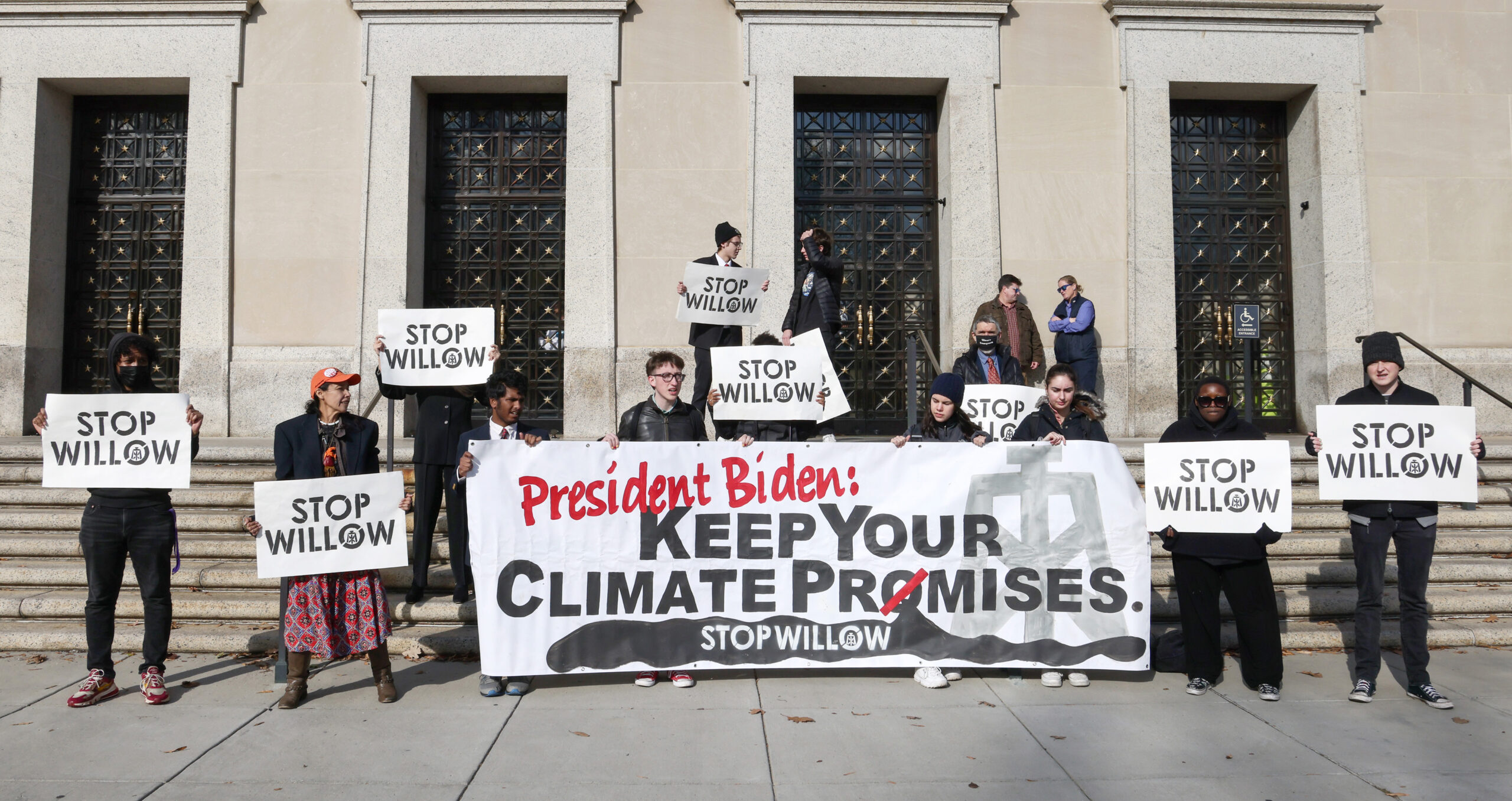
Biden’s approval of Alaskan oil drilling prompts environmental lawsuits

Go-ahead for Willow project has potential to “undo the clean energy progress we’ve made” and threatens communities and wildlife, say environmentalists.
The approval of ConocoPhillips’ $8bn Willow project in Alaska last week prompted two environmental lawsuits against the US government.
Environmental campaigners – including the Natural Resources Defense Council and the Center for Biological Diversity – filed a lawsuit on March 14 against the approval of the oil drilling venture, on the grounds that the government allegedly didn’t address concerns raised in a previous court ruling.
A separate lawsuit was then filed by parties including the Sierra Club and the Sovereign Iñupiat for a Living Arctic, which accused the project of endangering wildlife, indigenous people and the green transition.
Brett Hartl, government affairs director at the Center for Biological Diversity, told Sustainable Views that Willow was the “largest single approval of [oil and gas] leasing” in Biden’s time in office, and follows some 6,000 other approved fossil fuel projects that the center is challenging in court.
The centre also alleged that more public lands drilling permits had been issued during the first two years of Biden’s presidency than during the four-year Trump administration. “The problem is that once the oil industry gets a toehold into an area like this, they’re not going to let go,” Hartl said. “Nothing precludes Conoco from asking for additional wells. Nothing precludes other companies seeking leasing. This won’t be the last three leases in these areas.”
Sierra Club executive director Ben Jealous said the Willow project has “the potential to entirely undo the clean energy progress we’ve made, lock us into fossil fuel drilling for another 30 years, and threaten the communities and wildlife who rely on these Alaskan landscapes”.
Industry vs environment
During his election campaign, Biden said there would be “no more drilling on federal lands, no more drilling, including offshore – no ability for the oil industry to continue to drill – period”.
However, the Willow project is expected to produce 180,000 barrels of oil per day at its peak – and could generate up to $17bn in new revenue for the federal government.
The Biden administration has won acclaim for mobilising hundreds of billions of dollars in green subsidies through the Inflation Reduction Act, passed last year. In light of Willow’s federal approval, however, the US government appears to signal that industrial policy takes priority over the green transition.
On the production side, Sean McGarvey, president of trade association the American Petroleum Institute, welcomed the project, saying in a statement: “The approval of critical energy infrastructure investments like Willow is essential to strengthening US energy security and creating new economic opportunities across the country.”
Meanwhile, Arun Pillai-Essex, principal consultant at Verisk Maplecroft, said the approval of the Alaskan oil project “is an example of the difficult balancing act that many global leaders are facing between confronting energy security concerns and meeting ambitious climate targets”. He pointed out that governments elsewhere have approved fossil fuel projects in the past year, including Germany, Italy and the UK.
“The IRA bill is framed not only as a climate bill, but as industrial policy to boost domestic manufacturing while at the same time advancing geopolitical interests by competing with China,” Pillai-Essex said, adding that the Willow decision “followed a similar template in trying to shoehorn competing interests”. The Alaskan oil drilling project was cut back to three drilling sites from an initial five proposed by ConocoPhillips.
International reactions
There is widespread recognition among the international community that the expansion of fossil fuel projects should have ended by now. Last year, UN secretary-general António Guterres said: “Fossil fuels are a dead end – for our planet, for humanity, and yes, for economies.”
Lubomila Jordanova, CEO of carbon accounting company Plan A, said this was further evidence of the EU’s stronger commitment to stemming the effects of climate change compared to the US.
“The IRA is not a climate act,” she said, adding that US interests are necessarily industrial while the EU has a strong desire to reduce emissions. “Even if it concentrates on frameworks, the EU’s industrial and sustainable efforts are better aligned [than those of the US].”
Abigail Dillen, president of US non-profit Earthjustice, which litigates environmental issues, said we are “too late in the climate crisis to approve massive oil and gas projects that directly undermine the new clean economy that the Biden administration committed to advancing”. Earthjustice has also filed a preliminary injunction on Willow.
ConocoPhillips and the US ministry of the interior declined to comment.
Similar Articles

Question mark over US climate disclosure rule as SEC puts it on pause

In Brief: Esma targets credit rating agencies’ ESG methodologies; climate litigation heats up in Europe


